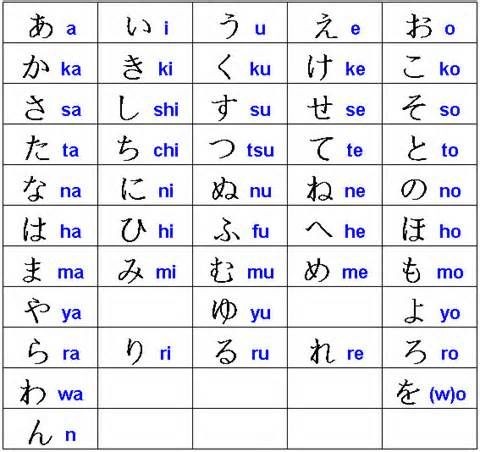Learning Japanese free online with audio and dictionary fast, easy & for free
Get started learn Japanese for beginners
Have you been interested in learning Japanese in 2024, but have no idea where to start? The step-by-step guide below is for all beginners and those considering learning Japanese but who are lost on exactly how to get started. Learning Japanese on your own is a difficult task and it’s hard to know exactly where to start to improve your Japanese language skills.
How to learn Japanese?
It may seem like common sense, but learning Japanese through things that you find interesting will make the learning process more fun. Don’t keep your learning so serious to the point that it becomes a burden to you. Learning should be enjoyable, so try to match it with your interests! If you’re into music, for example, use music to learn Japanese. If you love reading, check out some interesting Japanese novels. If you’re a fan of movies and TV shows, then use the Japanese counterpart. You can get even more niche, like finding a Japanese-speaking Discord group that plays your favorite game, or joining a subreddit that shares recipes in Japanese.
Japanese Dictionary Learning All Languages
Learning Japanese by subjects
If you're trying to learn Japanese, check our courses below about adjectives, adverbs, articles, gender (feminine, masculine...), negation, nouns, numbers, phrases, plural, prepositions, pronouns, questions, verbs, vocabulary, excercises... to help you with your Japanese grammar. Below are our free Japanese lessons. Enjoy our courses!
Japanese, spoken by more than 125 million people in Japan, ranks among the top ten languages of the world. It belongs to the Japanese-Ryukyu family, yet no definite link has been established between Japanese and any other language, living or dead. Though it adopted the Chinese pictographic characters in the 3rd century A.D., Japanese is not, as is sometimes thought, genetically related to Chinese, but rather to Korean and other Altaic languages, such as Mongolian. The latest linguistic theory suggests that Japanese went through a complex transformation of a possible Pacific language, influenced by the rice-producing people of Southern China and the Altaic people.
Buddhism and the Chinese culture made much influence on the Japanese language, just as Christianity and the Latin language made a great influence to the West European languages. The Japanese writing system uses the phonetic character sets, called Hiragana and Katakana, and the Chinese characters, called Kanji (Hanzi in Chinese). The Kanji are ideographs. An educated person can read 10,000 of them and the government has published a list of 1,850 that it considers basic. In normal Japanese writing, Hiragana and Kanji are used, while Katakana is used for words borrowed from the non-Chinese foreign languages.
There are a few ways to express Japanese in the English alphabet, called the "romanization." One of the most commonly used romanization methods in Japan is the Hepburn method. Modern Japanese writing began in 1946, and the Kanji characters were simplified in 1949 as "Toyo Kanji" (1850 characters). The latter were further redefined as "Joyo Kanji" (1945 characters) in 1981. Japanese is generally written vertically beginning on the right, but many texts today are written horizontally to permit the inclusion of English words, Arabic numerals, and mathematical and chemical formulas. English words of Japanese origin include kimono, geisha, sukiyaki, hibachi, jiujitsu, karate, samurai, etc...
We hope the lessons above helped you learn Japanese. To learn other languages please check our homepage here: Wikilanguages.net. Don't forget to bookmark this page.
Please select a subject you are interested in learning and let's get started!
 | Bar | |
|---|---|---|
 | Beach | |
 | Colours | |
 | Conversation | |
 | Essentials | |
 | Family | |
 | Feelings | |
 | Hotel | |
 | In case of trouble | |
 | Learning | |
 | Looking for someone | |
 | Numbers | |
 | Parting | |
 | Restaurant | |
 | Taxi | |
Time tracking | ||
 | Transportation |
The native speak japanese:

Japan
Palau
Should I learn japanese?
How Many People Speak Japanese, And Where Is It Spoken?
If learn Japanese, you can speaking in Japan, Palau, .
About 128,000,000 people on Earth speak Japanese.

Distribution of Japanese language
Japanese Alphabet and Pronunciation

Japanese Alphabet of
How to learn Japanese by yourself? Start with an easy and free online course!
We have adopted an objective and efficient approach to learn how to speak a language easily and quickly: we suggest you to start by memorizing words, phrases and practical expressions that you can use in everyday life and that will be useful when traveling.Getting used to pronounce words out loud, numbers for instance, is an easy exercise that you can practice often and at anytime throughout the day.
It will help you to get used to the sounds of your chosen language and thus make it more familiar.
And once your holidays have begun, in Tokyo, Osaka or elsewhere in Japan, you will be surprised how familiar and easy to understand it will seem.
Furthermore, using a pocket dictionary is always useful, particularly during a trip. It enables you to find the translation of new words and enrich your vocabulary.
Why speak Japanese when traveling?
At the crossroads of tradition and technology
Formed by more than 6,500 islands, Japan is one of the world's largest economic powers, and companies such as Toyota, Honda, Canon, Panasonic, Sony and Nintendo are world famous. Investment in research plays an important role in many areas - including robotics - in which Japan is one of the most advanced countries in the world.The quality of life in the land of the rising sun is one of its remarkable characteristics and reflects its place in the HDI rankings. Japanese life expectancy is very high.
In relation to tourism, the rich cultural heritage brings together the curious and passionate from all over the world, who come to see the country's natural and architectural heritage, such as Mount Fuji, imperial palaces, Buddhist temples and gardens, as well as museums where it is possible to discover the development of ceramics, calligraphy, literature and forging - including samurai swords.
The popular culture of the late twentieth and twenty-first centuries is also marked by the popularity of Manga and animations, not only in Japan and Asia, but also in many countries. In addition, Japanese gastronomy is also very popular and can be enjoyed around the world.
Make a success of your stay in Japan
Whether you are going to spend a few days with friends for a leisure trip or if you are on a business trip, nothing will be more useful to you than to be able to slip a few words in the language of your interlocutors, who will appreciate your effort and will be certainly more willing to help.How to succeed in having good pronunciation within a week to a month?
It's easy, but you have to train yourself!
In the course of history, Japanese has been enriched by borrowing from other languages such as Chinese and English. The graphic system is divided into two sets, the Kanji of Chinese origin and the Kanas, in turn divided into katakanas (used to write the words of foreign origin) and hiraganas.Spoken by about 130 million people, the language is characterized by the importance of the formulas of politeness that depend both on the speaker and the subject matter.
The pronunciation of Japanese does not present great difficulties, but you must know the rules and keep training yourself. The vowel system contains the short vowels A I U E O.
Long vowels are formed by the contiguity of short vowels. There are no nasal vowels. There are also two semi-vowels, the Y and the W, which are always placed before the vowel.
The association of a consonant to the letter groups YA, YU and YO forms the voiceless consonants, such as KYA, SHU, CHO and PYU. Usually, consonants have only one pronunciation. It should be noted that the R will always be read as an L and that the W is pronounced like the OU in English.
We invite you to listen to the pronunciation of the letters by clicking on the following link: Japanese alphabet with audio.
1. What can people do to learn Japanese language?
People can do many things to learn Japanese language, like they can join formal Japanese language classes, learn through the online resources, travel to the country where speak Japanese, or watch movies in Japanese language.
2. What are the difficulties to learning Japanese language?
There are some difficulties learners may face when learning Japanese. The grammar and other rules need to understood and learned. Vocabulary and pronunciation may also be difficult to learn. Some other challenges could be comparisons with one’s own language which cause an hindrance in learning Japanese language.
3. What is the best way to learn Japanese language?
I think there are many good and effective ways to learn Japanese language. I consider classroom learning the best because we can learn from an expert and also get some practice with our peers, which helps with learning a language faster. If you don't have time, free online courses are also very effective, it's important to be self-aware.
